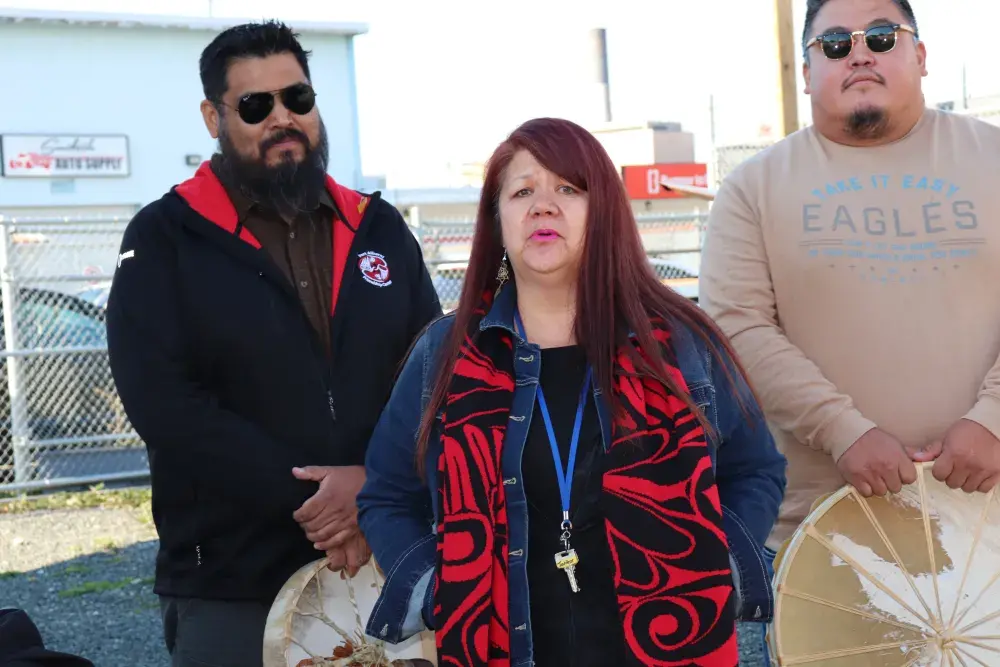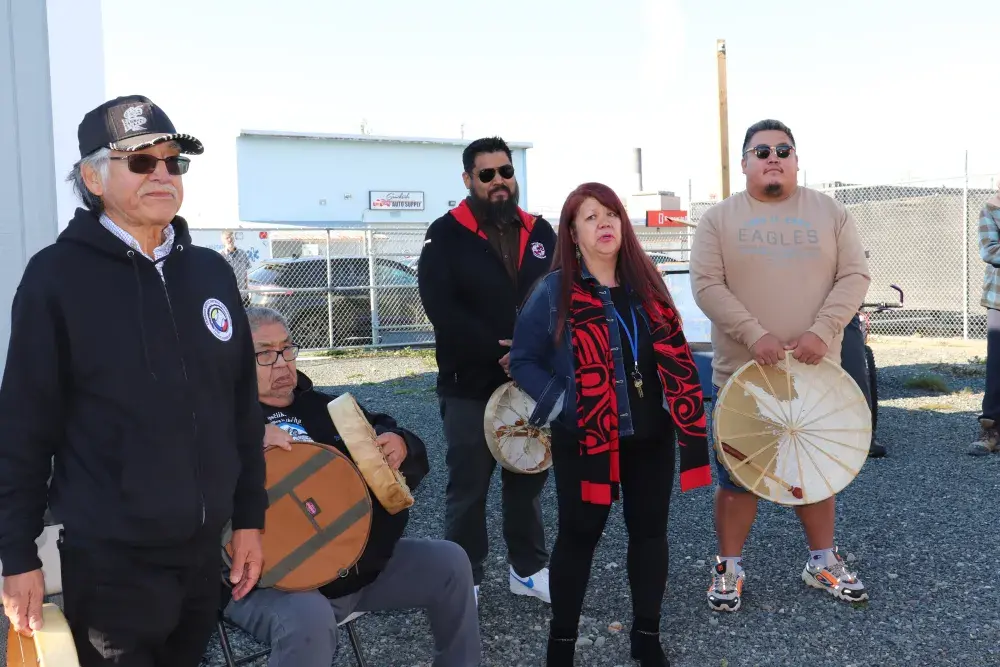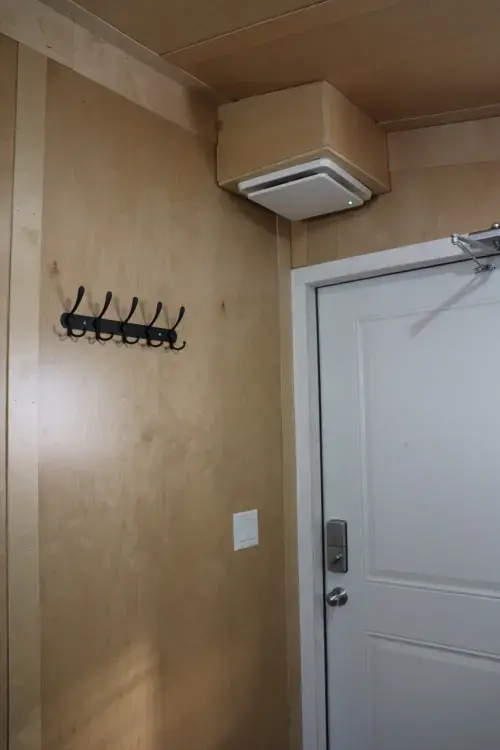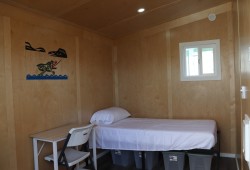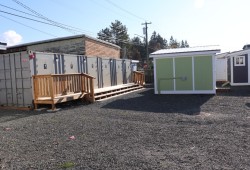It’s been two years since the idea of a tiny home village for Port Alberni’s most vulnerable was first floated and now opening day is finally here. Port Alberni Friendship Center Executive Director Cyndi Stevens invited Ha-Shilth-Sa to an open house on Oct. 26 to make the announcement.
In June 2022, Ha-Shilth-Sa reported that the Friendship Center, in collaboration with BC Housing, the City of Port Alberni and a housing task force that includes Tseshaht, Hupacasath, the Nuu-chah-nulth Tribal Council and other community agencies, would develop Wałyaqił - Tiny Home Village.
The tiny home village is located on 4th Avenue, next door to what is commonly known locally as ‘The Ghetto’, the Wintergreen Apartments and the adjacent lot filled with dilapidated trailers rented for approximately $400 per month to low barrier, vulnerable tenants. Since late 2022 a portion of the apartment building has been closed due to fire damage, in which a tenant lost his life. But the trailers remain along with a lone, smelly port-a-potty up on the other side of the fence next to the sidewalk.
Stevens was thrilled to announce that 20 tiny homes are complete. They have passed final inspection and occupation permits were issued almost immediately. This means the first few tenants will begin moving in this morning (Oct. 27).
“The staff (for the village) started today and will be back at 6 a.m. and begin moving people in at 10 a.m.,” she told Ha-Shilth-Sa.
The units are solid and well anchored.
“They’re probably safer than most houses,” said Stevens.
And that is why there were so may delays in opening the village. PAFC needed to apply and wait for permits. They had to wait for and pass inspections at various phases. They had to do revisions in some cases, driving up the cost of development. Building expenses, Stevens said, doubled and tripled in some cases over time.
“We tore up the ground three times for the electrical work,” said Stevens.
Opening day may have come a year behind schedule, but Stevens is pleased that PAFC and all its partners can now offer a dignified, clean, safe space for Port Alberni’s most vulnerable, many of whom are Indigenous.
Wałyaqił Tiny Shelter Village offers 20 living units, with bathroom, shower and laundry facilities on the site. There is a separate office at the entrance to the property that will be staffed 24/7.
The village has funding in place for two years from the provincial government. Each unit is eight by 12 feet and is heated. Each unit has a single bed, a desk and chair, a mini fridge and storage containers under the bed for personal belongings.
There are no cooking appliances in the units. Instead, meals will be provided by partner agencies like the Bread of Life and the Salvation Army. Residents will also have access to resources like cultural support, health, education and counselling.
It is anticipated that the new site will offer a sense of belonging and community for those without access to basic necessities, while working with community to transition them into longer-term sustainable low-barrier housing.
Ahousaht elder Wally Samuel said he and his wife got their start in Port Alberni in 1966. At one point they lived in the green building now known as “The Ghetto”. It was a nicer apartment building then.
“Back then there were mills everywhere. Everyone had jobs. It’s sad to see how things have changed,” he remarked.
Aaron Angeli of the Tseshaht First Nation welcomed people to the gathering on behalf of his nation. Tseshaht shares the city with the Hupacasath, but he also pointed out that Port Alberni is home to many other Nuu-chah-nulth-aht.
Stevens says the housing units will be filled in increments, about four at a time until they are all occupied. The PAFC is looking for funds to develop ten more units to fill the 4th Avenue location to capacity.
Wally Samuel praised PAFC, saying it offers a safe place for Indigenous people to access services and culture. But it’s important to remember they do not discriminate.
“They don’t ask you for your Indian Status card when you go there for services, they are there for everyone,” he said.
The new housing units are beautiful and Samuel said he hopes people will respect what has been provided for them, not only by the PAFC, but also the city and other agencies and First Nations.
“All local First Nations and the NTC support this project because their people are down here,” said Samuel.
And for that reason, Samuel reminded people not to judge others.
“You don’t know what’s happened to them – just respect each other, love each other,” he said.
PAFC Chairman Richard Samuel was grateful that the village will open in a matter of hours. He said there had been a lot of barriers including weather and changes in plans but now the most vulnerable community members will have a home.
He thanked the city, First Nations and local organizations for their support.
“Thank you for having the confidence in us to run this village,” he said.

